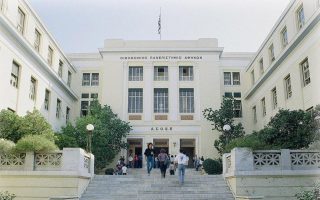Education and hypocrisy

University candidates taking part in Friday's nationwide exam on the subject of Modern Greek were asked to distinguish between the notions of “education” (paideia) and “training,” on the basis of a passage written by professor Dimitris Maronitis. The two terms often appear as synonyms, but in the words of the renowned scholar and translator, “education is more about the method; training is mostly about action.” He said that in order to not violate itself, education must be a more or less free process. By contrast, training is controlled. “Education is (ought to be) optional; training is seen as compulsory, and rightly so,” he said.
Let’s ask ourselves what the more than 100,000 candidates this year really know about this distinction. Have they really cherished the benefits of training and the pleasures of education? Have they ever experienced the excitement generated by the conquest of the tiniest piece of knowledge (which is not the product of sterile memorizing)? How does this regular, or irregular, army of candidates behave? What are their desires, aims and ambitions? Why does the overwhelming majority of candidates in Greece prefer university to technical education? (About 90 percent of Greek school children opt for university education while 60 percent of their German counterparts prefer one of the country’s technical colleges.)
There could be as many answers to these questions as there are candidates. However, while it’s hard to question the absence of a solid and credible structure that could be an incentive for professional training (like, for example, the Technological and Vocational Education Centers that were later replaced by the technical colleges or TEI), it is not the only problem.
There is also the deeply rooted civil service mentality and the enduring prestige of the university certificate which, despite all the damage caused by poor ministerial decisions, has not lost its status in the eyes of the average Greek family. The high unemployment rate does not put candidates off. Nor does the fact that the public sector is no longer a guarantee of well-being. After all, it’s some years before graduation and attempting to enter the job market.
The more one thinks about Friday's exam topic, the more hypocritical it seems. Excluding any forward step taken with the power of knowledge (the evaluation of data, the ability to adapt to change), what is left for the state and the candidate when education comes to be identified with the nationwide exams and paideia is added as a topping on the Greek wedding cake of ignorance and compulsion?





